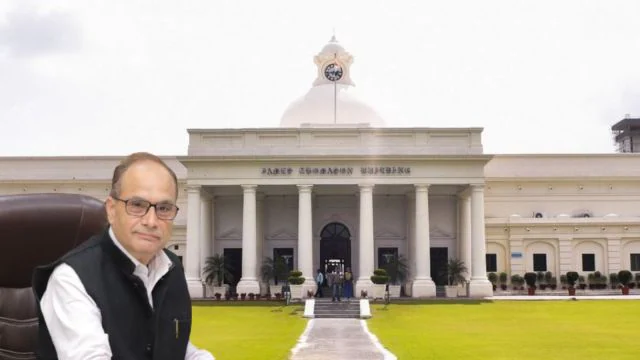At IIT Roorkee’s convocation this week, Director Prof. Kamal Kishore Pant reflected on the shifting aspirations of young engineers. For him, it is both an exciting and worrying time. Exciting- because more students are choosing to pursue start-ups, higher studies, and independent ventures; worrying-because fewer are interested in joining the traditional “hardcore” industries like mechanical, electrical, and chemical engineering.

“Students today are not opting for placements in the process industry,” Prof. Pant explained. “They are more drawn to IT, finance, and consultancy roles. In the beginning, they look at the package and the job comfort—whether they’ll have an office, a computer, an AC room. That’s the trend.”
The appeal is obvious. Tech multinationals such as Google and Microsoft can offer packages as high as ₹1–2 crore a year, especially when salaries are pegged to dollars. By comparison, traditional core industries average around ₹20–25 lakh per year. For a young graduate, the difference is staggering. “So yes, pay packages do play a role,” Prof. Pant admitted.
But he stressed that these comparisons can be misleading. Only a small fraction of students receive the ultra-high packages from global tech firms, while placements in the core industries are more consistent and also rewarding in the long term. “These hardcore industries also pay equally well, if you look at it over time. They are vital to the nation’s growth in terms of GDP and development.”
This is where Prof. Pant sees a responsibility for institutions like IIT Roorkee. “We need to train the younger generation, and even their parents, not to think of only one branch. Mechanical, electrical, chemical—these are equally important. The process industries and MSMEs are critical for India’s industrial future.” The institute, he added, is actively working to strengthen ties with MSMEs and large-scale industries, hoping to encourage more students to explore opportunities there.
The conversation comes at a time when placement data across the IIT system has drawn scrutiny. A Parliamentary Standing Committee report earlier this year showed that in more than half of the country’s 23 IITs, BTech placements dropped by more than 10 percentage points in 2023–24 compared to 2021–22.
At IIT Roorkee, the contrast is clear. In 2021–22, nearly 99 percent of the 822 students who appeared for placements were placed. In 2023–24, out of 1,052 students who sat for placements, about 80 percent were placed. On paper, that looks like a sharp fall.
But Prof. Pant pushes back against that interpretation. “I would not call it a decline,” he said firmly. “On average, about 85 percent of those who appear for placements are getting jobs. The lower figure comes because many students are not sitting for placements at all. That is not the correct way to measure success. The right metric is how many of those who registered for placements were selected—and that figure is over 85 percent.”
So why are students opting out? For Prof. Pant, the answer lies in changing mindsets. Today’s IIT graduates are less fixated on securing a stable job and more willing to take risks. Some are heading abroad for higher education, though that number is beginning to decline. Many others are staying back in India, working in teams to launch start-ups or independent ventures. “That trend is clearly emerging,” he said.
Since taking charge in 2022, Prof. Pant has made it a priority to encourage entrepreneurship and skill development among students. He sees it as part of the institute’s role in shaping not only employees but also innovators and employers. “With the right training, our students can establish start-ups that create jobs and contribute to the economy,” he said.
Yet, the balance matters. For India to continue its growth story, core industries cannot be ignored. Prof. Pant’s message to students is simple: look beyond the immediate allure of the package. Think long term. Think of the country’s needs.
As IIT Roorkee graduates step out into the world, many will head to plush IT offices, some to global banks, and a few to billion-dollar start-ups. But for Prof. Pant, the hope is that more will also look towards the factories, plants, and industries that built modern India—and still hold the keys to its future.
Also Read: https://thenewstudent.com/arunachal-pradesh-medical-college-namsai-project/